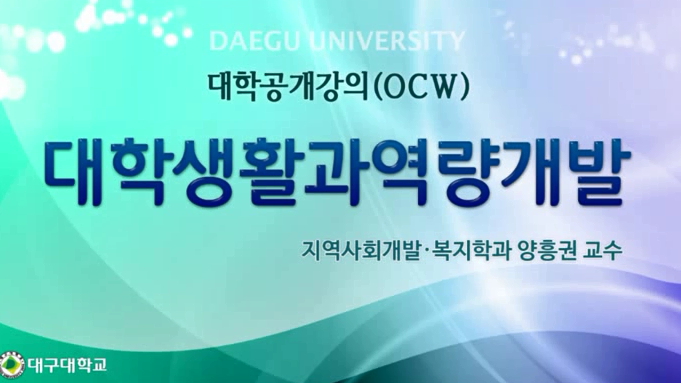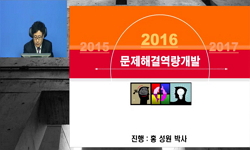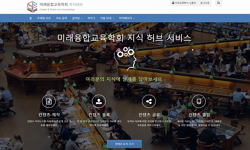As a traditional top‐down approach of technical assistance has been criticized and more effective development cooperation strategies have been sought, new capacity development paradigm stands at the center of attention. This research raises a qu...
http://chineseinput.net/에서 pinyin(병음)방식으로 중국어를 변환할 수 있습니다.
변환된 중국어를 복사하여 사용하시면 됩니다.
- 中文 을 입력하시려면 zhongwen을 입력하시고 space를누르시면됩니다.
- 北京 을 입력하시려면 beijing을 입력하시고 space를 누르시면 됩니다.

상호성 기반의 역량개발 패러다임과 지식공유: 세계은행과 한국의 사례를 중심으로 = Reciprocity-Based Capacity Development and Knowledge Sharing: Focusing on World Bank and Korea
한글로보기https://www.riss.kr/link?id=A102116960
- 저자
- 발행기관
- 학술지명
- 권호사항
-
발행연도
2013
-
작성언어
-
-
주제어
상호성 ; 역량개발 ; 지식공유 ; 세계은행 ; 한국 ODA ; reciprocity ; capacity development ; knowledge sharing ; World Bank ; Korea s ODA
-
KDC
349
-
등재정보
KCI등재
-
자료형태
학술저널
-
수록면
113-151(39쪽)
- 제공처
-
0
상세조회 -
0
다운로드
부가정보
다국어 초록 (Multilingual Abstract)
As a traditional top‐down approach of technical assistance has been criticized and more effective development cooperation strategies have been sought, new capacity development paradigm stands at the center of attention. This research raises a question of what reciprocity for capacity development implies as well as whether knowledge sharing cases of today put reciprocity into practice.
With an aim of reaching an answer and policy implications for Korea’s development cooperation, Chapter 2 reviews theoretical backgrounds and a process of transition from technical assistance to capacity development. In Chapter 3, this study explores knowledge sharing cases of World Bank and Korea. In particular, spending and practices on knowledge strategy by World Bank and World Bank Institute(WBI) are reviewed. Also, Korea’s Knowledge Sharing Program(KSP) operated by the Ministry of Strategy and Finance as well as projects by Korean International Cooperation Agency(KOICA) are the major objects of this research.
This study finds intersections between the cases that implement reciprocity and that lack of reciprocity which has been emphasized in the new capacity development paradigm. Supported by the findings, policy implications are offered in Conclusion.
국문 초록 (Abstract)
기존의 전통적인 상하조달식 기술전수의 문제점이 지적되고 보다 효과적인 개발협력 전략을 모색함에 따라, 공여기관들은 새로운 역량개발 패러다임에 주목하기 시작하였다. 본 논문은 개...
기존의 전통적인 상하조달식 기술전수의 문제점이 지적되고 보다 효과적인 개발협력 전략을 모색함에 따라, 공여기관들은 새로운 역량개발 패러다임에 주목하기 시작하였다. 본 논문은 개발 협력에서 역량개발을 위한 상호성은 어떠한 의미이며 과연 오늘 날의 지식공유 이행사례가 상호성의 개념을 반영하고 있는가라는 질문을 제기한다.
이에 대한 해답과 한국의 개발협력 정책 및 사업에 대한 함의를 도출하는 것을 목표로, 2장에서는 상호성을 기반으로 하는 지식공유 개념에 대한 배경과 전통적인 기술협력이 새로운 역량개발 패러다임으로 변화한 과정을 고찰함으로써 이론적 배경의 기반을 다지고자 하였다. 그리고 3장에서는 세계은행과 한국의 지식공유 현황을 살펴보았다. 특히 세계은행이 지식이라는 추상적인 개발협력의 매개체를 구체적으로 활용한 과정과 산출물로 나타난 사업들을 집중적으로 파악하였고, 한국의 경우 기획재정부의 경제 발전경험 공유사업(KSP)과 외교통상부의 한국국제협력단(KOICA) 을 통한 지식공유 동향을 중점적으로 연구하였다.
본 연구는 새로운 역량개발 패러다임이 강조하는 상호성이 지식공유 과정 전반에 반영된 경우와 그렇지 않은 경우들을 발견하 고, 이를 바탕으로 한국의 지식공유 정책과 사업이 나아갈 방향에 대한 시사점을 제시하고자 한다.
목차 (Table of Contents)
- Ⅰ. 서론
- Ⅱ. 지식공유와 역량개발패러다임과의 관계
- Ⅲ. 세계은행과 한국의 지식공유 사례분석
- Ⅳ. 결론 및 한국의 지식공유 발전을 위한 시사점
- Ⅰ. 서론
- Ⅱ. 지식공유와 역량개발패러다임과의 관계
- Ⅲ. 세계은행과 한국의 지식공유 사례분석
- Ⅳ. 결론 및 한국의 지식공유 발전을 위한 시사점
동일학술지(권/호) 다른 논문
-
에너지부문 원조 효과성 제고를 위한 수원국 중심의 전략적 접근방안 연구
- 국제개발협력학회
- 윤주철(Joochul Yoon)
- 2013
- KCI등재
-
유엔사막화방지협약(UNCCD) 이행의 한계와 한국의 역할
- 국제개발협력학회
- 박수진(S.J. Park)
- 2013
- KCI등재
-
- 국제개발협력학회
- 문경연(Moonkyung Yon)
- 2013
- KCI등재
-
우리나라 과학기술 ODA의 대상국가 선정기준에 대한 연구
- 국제개발협력학회
- 이우성(Woosung Lee)
- 2013
- KCI등재




 스콜라
스콜라






